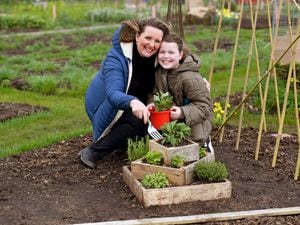'Help needed to prevent a damaged generation in the wake of Covid-19'
Ally Sultana, campaigns manager for the NSPCC, talks about how the charity feels a plan is needed to avoid 'a legacy of devastation and trauma' in the wake of the coronavirus crisis.

The last three months have been an incredibly challenging time for so many of us – and now we are gradually beginning to emerge from lockdown and come to terms with a new way of life.
Pubs, restaurants and shops are re-opening, some year groups have returned to school ahead of the summer holidays, and people are beginning to meet up with loved ones and friends again.
But for many children across our region and beyond, life cannot simply go back to normal – and lockdown has only intensified the problems they were already facing.
That is why we are now calling on the Government to urgently commit to a children’s recovery plan, to ensure they get the help and support they need – and to avoid a legacy of devastation and trauma for a generation of young people.
A rising tide of contacts to the NSPCC helpline over the last three months has reinforced how children have been the hidden victims of the pandemic.
In April, May and June we heard from more than 22,000 adults with concerns for the wellbeing of a child.
This is an increase of almost a third on the monthly average for the three months prior to the lockdown with May seeing 8,287 contacts, the highest number ever made to the adult helpline in a single month on record.
Around 40 per cent of contacts were so serious that they had to be referred to agencies such as local authorities or police.
Of these, the helpline made 2,291 referrals to agencies in the Midlands in April, May and June.
These latest figures come a week after the Education Secretary set out plans to get young people back to school full time, and we are now urging the Government to ensure the recovery plan addresses the full range of children’s needs.
The NSPCC’s helpline is a national service for adults to use if they have concerns about the wellbeing of a child.
The main issues confronting our child safety experts across the lockdown period have been parental behaviour, physical and emotional abuse and neglect.

One adult who spoke to the NSPCC helpline during the lockdown said: “I’ve become increasingly disturbed by the noises coming from one of one my neighbours – it’s been getting worse since the lockdown. I can hear the mother shouting and swearing at her two little ones, it sounds vengeful and aggressive.
“Sometimes the mother locks her kids out in the front garden as punishment – last time this happened the youngest was crying hysterically for half an hour, it was awful. Is there anything you can do?”
We know that increasing parental and family stress, reductions in protective services and the intensification of pressures on children’s emotional wellbeing caused by lockdown can increase the risk of abuse and neglect.
These traumatic experiences can have a devastating impact on children’s health and wellbeing and can stop children from learning, with the long-term effects following them into adulthood.
However, with the right support, young people can recover and be helped to move on with their lives.
Now we are calling on the Government to draw up a recovery plan which sets out how they will:
Deliver the long-term investment in children’s social care that is needed to provide high quality preventative and therapeutic services for children in every part of the country;
Invest in rebuilding support for families with babies and young children who have missed out on the normal support from health visitors during the lockdown;
Support multi-agency partnerships of the local authority, NHS and police to work with schools to review support for children known to the designated safeguarding lead, and identify those who continue to miss class with a plan to understand and address any barriers to a child’s school attendance.
Ensure schools are ready to help all children who need it – particularly those who may have suffered abuse, neglect or other traumatic experiences during the lockdown. Schools must be equipped to recognise and respond sensitively to children who have experienced physical or mental harm, trauma or adverse experiences when they return to the classroom.
Support the NHS, including through the provision of additional investment, to develop a coordinated plan to respond to what is likely to be an increase in referrals into Children and Mental Health Services (CAMHS) arising from the coronavirus crisis.
The increase in contacts to our helpline during the lockdown highlights how the home has become an increasingly unhealthy and even dangerous place for some children.
We must all play our part in supporting children to recover from the mental and physical harm many will have suffered these past few months. Government’s role is crucial, and putting children at the heart of recovery planning and taking this action quickly will mean the crisis of the last three months does not scar the childhood of a whole generation.





